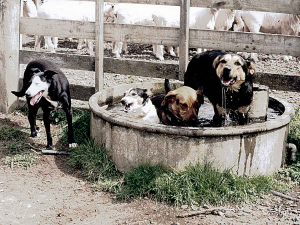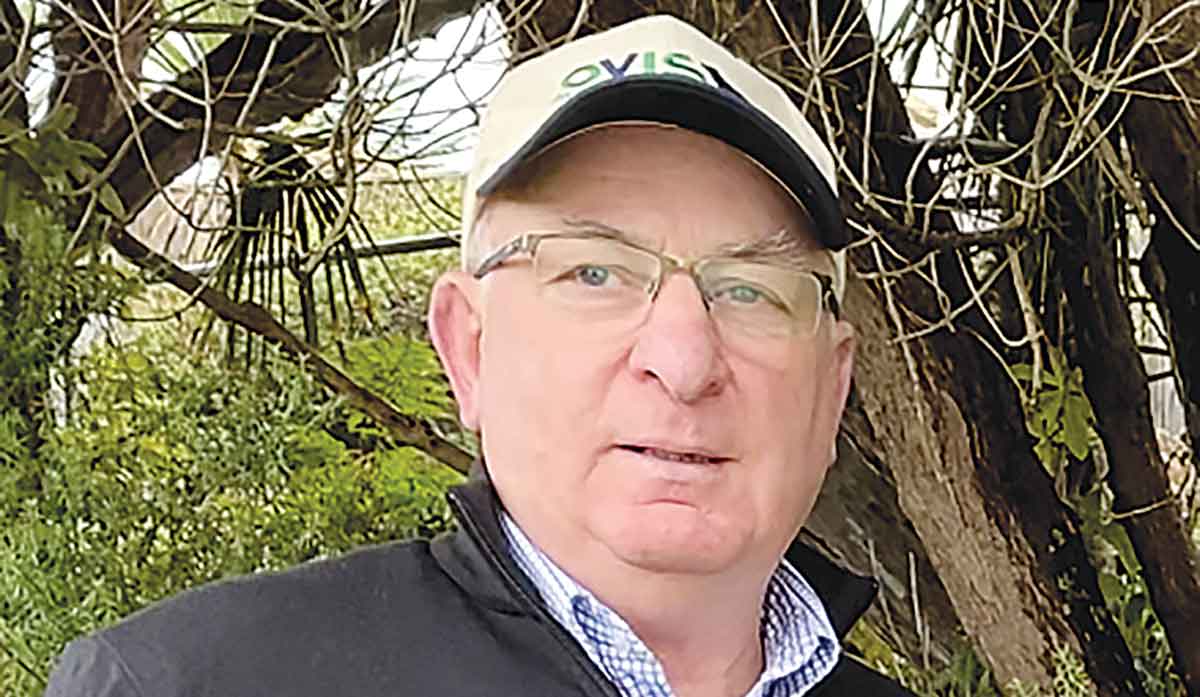Getting sheep shape at Pyramid Farm
The vineyards at Pyramid Farm in Marlborough’s Avon Valley have never been run of the mill, with plantings that follow the natural contours of the land, 250 metres above sea level.
 Ovis management’s Dan Lynch says it is a big mistake for sheep farmers to reduce on-farm dog treatments
Ovis management’s Dan Lynch says it is a big mistake for sheep farmers to reduce on-farm dog treatments
Requiring that all dogs on sheep farms be treated every four weeks for sheep measles is a significant step in reducing the impact of the parasite, says Dan Lynch.
Lynch, project manager, Ovis Management Ltd, says the change – as part of the New Zealand Farm Assurance Programme – means a gap in national sheep measles control is being closed even further.
He says one of the challenges with reducing sheep measles levels is that surveys show farmers buying in store lambs to finish have a higher prevalence than those finishing their own lambs.
“This is occurring despite the fact that the surveys show both groups are getting the same level of control,” Lynch adds.
“This leads to a situation where the store lamb finisher is contacted about their high prevalence at processing. However, the problem is with the breeder, who is out of the feedback loop.”
He says this is further complicated by the fact that, in nearly all cases, store lines are mixed – so the identity of the originating farm is lost.
“However, most farmers will at some point finish lambs and will likely be part of the NZ Farm Assurance Programme,” Lynch adds. “This means they will be treating their dogs four weekly and reduce the chances that they will unknowingly sell infected lambs to finishers.”
 |
|---|
|
Dan Lynch. |
Meanwhile, Lynch adds that the national prevalence of sheep measles for the current processing season, to the end of May, is in line with the record low of last year.
“Although, in recent months, the North Island lamb prevalence is tracking slightly ahead of last year.”
Lynch says that one factor noted during farm visits is farmers who have had few sheep measles in recent seasons have been reducing on-farm dog treatments.
“Big mistake!” says Lynch. “If you achieve zero or minimal infection levels, protect that achievement by keeping a tight treatment dog access programme in place.”
Key steps for control
• Dose all dogs on-farm, monthly
• Treat all sheep or goat meat by freezing or cooking
• Deter or ban all external dogs from entering farm unless, they have a current treatment certificate.
Agriculture and Forestry Minister Todd McClay is encouraging farmers and growers to stay up to date with weather warnings and seek support should they need it.
The closure of SH2 Waioweka Gorge could result in significant delays and additional costs for freight customers around the Upper North Island, says Transporting New Zealand.
OPINION: The year has started positively for New Zealand dairy farmers and things are likely to get better.
Ministry for Primary Industries (MPI) Director General Ray Smith believes there is potential for an increase in dairy farming in New Zealand.
New Zealand's new Special Agricultural Trade Envoy, Horowhenua dairy farmer, company director and former Minister of Agriculture, Nathan Guy says the Free Trade Agreement (FTA) with India is a good deal for the country.
New figures show dairy farmers are not only holding on to their international workforce, but are also supporting those staff to step into higher-skilled roles on farm.